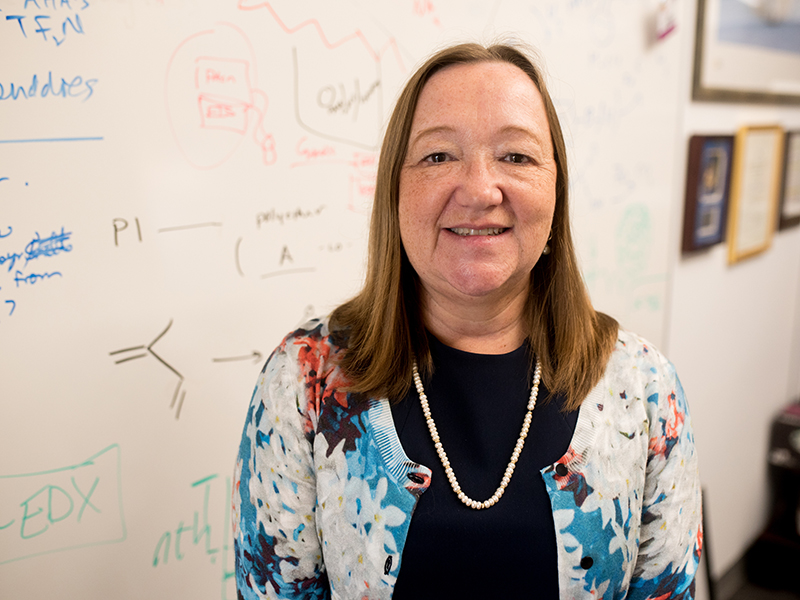The Thomas Andrews Lecture for 2025, will be given by Professor Joan Brennecke
Prof. Joan Brennecke will give the 2025 Thomas Andrews Lecture at the School of Chemistry and Chemical Engineering. The title of the Lecture is "Ionic Liquids and CO2: From Supercritical CO2 Extraction to Direct Air Capture".

Since our first measurements of the phase behavior of CO2 and 1-butyl-3-methylimidazolium hexafluorophosphate at pressures up to 400 bar, our group has focused on understanding the physical chemistry of CO2 + ionic liquid systems and designing ionic liquids (ILs) for CO2 separation applications. CO2 capacity based on physical dissolution and selectivity over other gases like N2 and CH4 can be tuned by the choice of cation and anion. Both entropic effects (i.e., free volume) and enthalpic interactions determine the selectivity. Potential applications for these ILs include natural gas sweetening and pre-combustion CO2 capture. Moreover, amine functionality can be incorporated into ILs to increase CO2 capacity at low partial pressures. These ILs react reversibly with CO2 to form carbamates and/or carboxylates. Of particular interest are ILs containing azolides as the anions since they have equimolar CO2 capacity and very little viscosity increase upon reaction with CO2. The enthalpy of reaction can be tuned by the choice of the azolide and electron donating or withdrawing groups. Thermophysical properties, like viscosity, heat capacity and thermochemical stability can be further tuned by choice of cation and substituents. Potential applications for these azolide ILs include post-combustion CO2 capture and even direct air capture of CO2. Configurations for performing CO2 separations with ILs include conventional absorber columns, as well as supported ionic liquid membranes. We will demonstrate advances in each of these areas.
Media
Prof. Panagiotis Manesiotis
